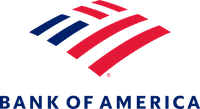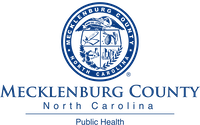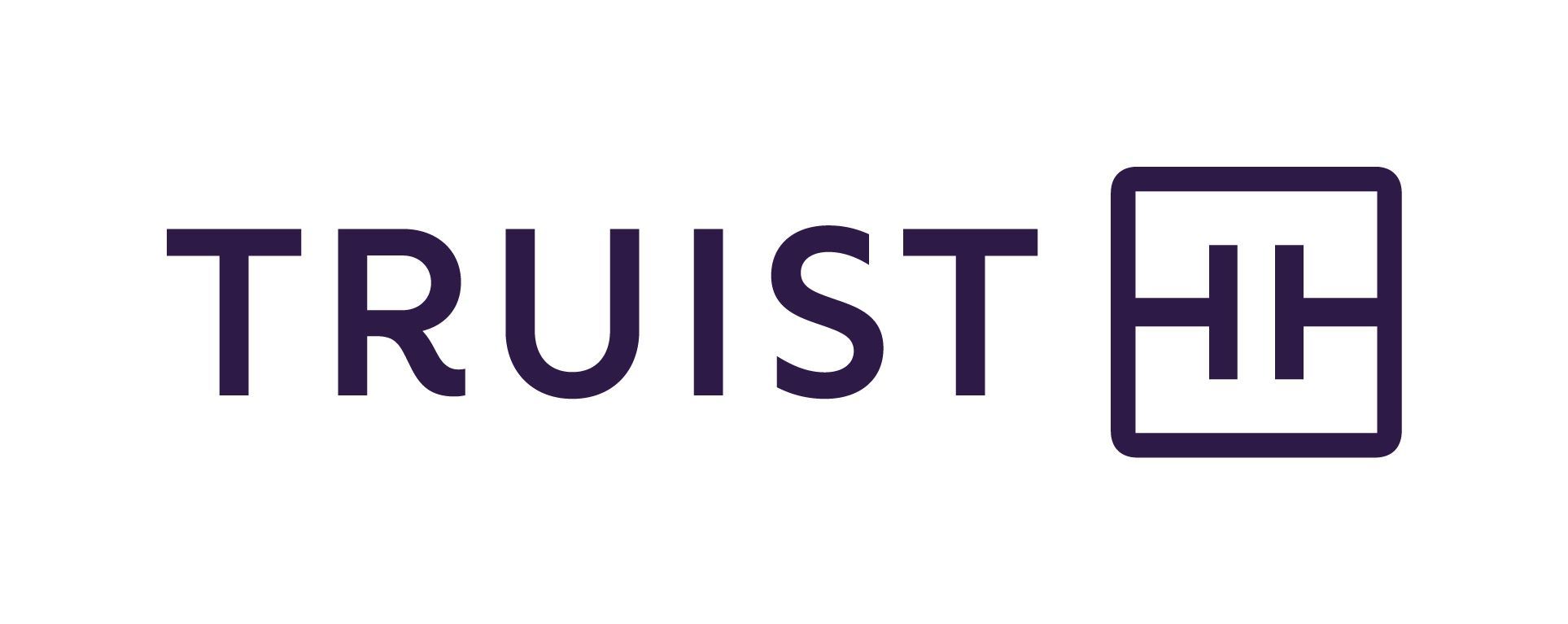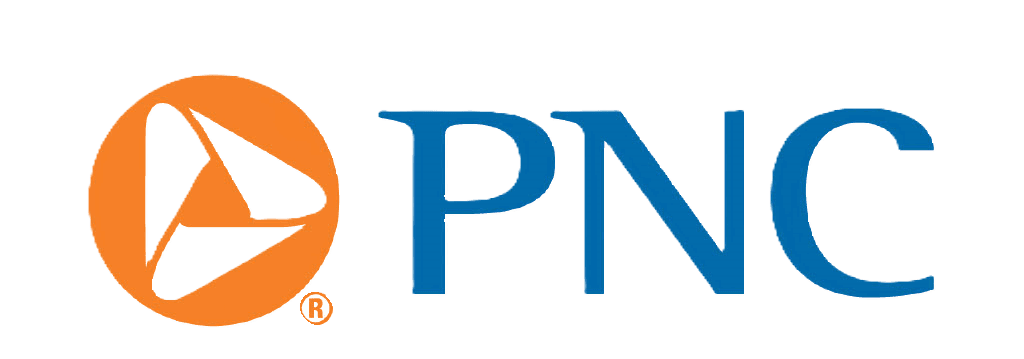News & Notes - Archives
Reinvestment Partners, a nonprofit dedicated to building healthy and just communities, launched its first *Food is Medicine* program in 2018 in Durham, NC. Its *Eat Well* initiative now operates nationally, offering healthy meals, grocery boxes, and produce prescriptions — serving over **150,000 participants** and generating **$30 million** in fruit and vegetable purchases. The organization aims to make healthy food a covered healthcare benefit and is collaborating with leading research institutions to evaluate program impacts. To date, its produce prescription programs have been included in **15 research studies**, supporting evidence-based integration of nutrition into healthcare.
Reinvestment Partners received a National Park Service Award for Harriet Tubman YWCA project. The project involves the historic rehabilitation of the Harriet Tubman YWCA in Durham and its conversion into 17 affordable efficiency apartments. The project is funded in part by the African American Civil Rights grant program, through the Historic Preservation Fund, as administered by the National Park Service, Department of Interior. For questions please contact Reinvestment Partners at info@reinvestmentpartners.org
Each year, one third of workers become eligible for the EITC. An IRS tool can help anyone figure out their eligibility. Millions of workers and families benefit from the EITC. If you’re unsure whether you qualify or not, check out the EITC Assistant on the IRS website. Many working people qualify for the IRS Earned Income Tax Credit. Do you? Do your loved ones? Check eligibility with the EITC Assistant. EITC is a refundable credit – that means if you qualify and claim it, you could pay less in taxes or get a bigger IRS refund. For working people experiencing homelessness, filing a tax return often carries an added bonus—getting an IRS refund based on various tax benefits, especially the Earned Income Tax Credit, or EITC. The Earned Income Tax Credit, or EITC, can be a powerful tool to combat hunger and homelessness in communities nationwide. Experiencing homelessness shouldn’t stop someone from claiming valuable tax benefits like the Earned Income Tax Credit, or EITC. A person may list the address of a friend or trusted service provider—like a shelter—on an IRS return.
Counselor Angella Coleman told The Tribune that it’s been difficult for working families to find affordable homes for purchase in Durham and some are resorting to neighboring counties. Counselor Rosa Manrique said they create detailed action plans for clients to follow in individual counseling and share different financial resources in homebuyer education like the North Carolina Housing Finance Agency’s N.C. Home Advantage Mortgage suite of products.
It is estimated that more than 1 million North Carolinians live in food deserts. Food deserts are neighborhoods that have limited access to affordable and nutritious food. Access in many areas is now even more limited because of supply chain struggles and the pandemic. Learn how collaborations in Anson, Union, and Watauga counties are helping people access fresh and affordable food.
About one out of every ten people living in Wake and Durham counties is food insecure, according to a report from Duke Health. To combat the issue, they're partnering with organizations [like Reinvestment Partners] in both counties to address those concerns, looking at food as medicine.
North Carolina is piloting an ambitious, $650-million Medicaid program to address the social factors that contribute to participants’ health. It’s a big lift that’s gotten a slow start.
“You have to get to volume,” said Skillern. He pointed to one of the HOP services his group administers: $40 worth of fruit and vegetables that participants can redeem at Food Lion or Walmart. Medicaid pays the $40, and Reinvestment Partners receives $5.25 as a service fee per person every month. Even if 1,000 clients used the benefit, the organization would only earn $5,250 a month. “It’s still not quite enough to run a program. That’s part of the challenge.”
So far, Eat Well has signed up more than 1,800 vets in North Carolina.
“But we haven’t scratched the surface of what’s possible,” says Neal Curran, Reinvestment Partners’ Director of Food Programs.
Many low-income Americans experience food insecurity, which may have been exacerbated by economic instability during the early stages of the COVID-19 pandemic in 2020. In this study we assessed the impact of Healthy Helping, a short-term fruit and vegetable incentive program aimed at alleviating food insecurity and improving diet quality for Supplemental Nutrition Assistance Program participants, on grocery purchases, using transaction data from a large supermarket chain in North Carolina.
“This is a rare moment for dynamic growth of high-impact healthy food programs,” said Neal Curran, Director of Food Programs, Reinvestment Partners.
Some of that impact has yet to be settled, said Peter Skillern, executive director of Reinvestment Partners in North Carolina, according to American Banker.
Skillern said TD has been largely absent from discussions about housing and community development, but First Horizon has been actively engaged.
“Whose bank culture will prevail?” Skillern asked. “What will the bank culture do as far as valuation of diversity? What is the diversity commitment at the local level, not just in the aggregate?”
Residents hope a pair of affordable housing developments in Bragtown will help slow the exodus of Black families.
The historic Harriet Tubman YWCA building in Durham has been closed for years, but soon renovation will begin as it will be turned into affordable housing.
The nonprofit group, Reinvestment Partners, purchased the property and will be turning the historic building into 15 affordable studio apartments.
Durham community members met with elected officials on Monday to accept $1 million in community project funding toward renovating the Harriet Tubman YWCA into affordable housing.
"This is support that rewards initiative, and that rewards partnership and that rewards those that get their act together and decide what they're going to do in the community and get it done and that's the spirit here," Price said.
The North Carolina Department of Health and Human Services today announced a major milestone in its innovative Healthy Opportunities Pilot program with 10 people who are members of managed care successfully receiving a food service delivered through NC Medicaid Managed Care.
The first referral for service was sent by Mission Health Partners on behalf of an NC Medicaid Managed Care member in Transylvania County to Reinvestment Partners, a statewide nonprofit organization. Reinvestment Partners provided the beneficiary family with food vouchers for fruits and vegetables.
Researchers at the University of North Carolina at Chapel Hill studied the effects of SuperSNAP, which is run in North Carolina through Reinvestment Partners of Durham, NC, to see if the additional funds translated into purchases of more healthful foods, setting the stage for better health outcomes.
Published in JAMA Network Open, the study found that in the first eight months of the program, SuperSNAP participants not only bought more healthy foods with the extra $40, but they also markedly increased their total purchase of healthier foods with SNAP benefits.
In this cohort study of 667 SuperSNAP participants and 33 246 SNAP beneficiaries not enrolled in SuperSNAP, participation in SuperSNAP was associated with a significant increase in purchases of fruits and vegetables of $31.84 per month.
Harriet’s Place in Durham, sponsored by Reinvestment Partners, is the renovation of the Harriet Tubman YWCA for formerly homeless people or people with special needs and will create 15 apartments close to services, shopping and employment centers.
"One patient summed it up best: 'When it comes to SNAP, you can eat #healthy or you can eat more than once.'
Here in Durham, we as health care providers can luckily offer something to help. Bull City Bucks was a pilot Produce Prescription Program [of Reinvestment Partners] that gives patients experiencing food insecurity $40 each month to spend on fruits and vegetables..."
Eat Well, which is led by Durham-based Reinvestment Partners, provides eligible members with a monthly benefit stipend, which can be used to purchase fresh, frozen or canned fruits and vegetables without added sugar or salt.
The Duke Homebuyers Club connects all Duke employees with financial literacy and resources [via Reinvestment Partners] to prepare them to navigate the process as first-time buyers.
Thankfully, the nonprofit and volunteer organizations in the Triangle have so far met the need to feed families during the COVID-19 pandemic. That includes the Produce Prescription Program run by Reinvestment Partners in Durham, which was providing nutritious food before the pandemic and hopes to find funding to continue long afterward.
Reinvestment Partners has hired Mr. Belcher to give haircuts to our Hotel to Home residents every month.
Reinvestment Partners offers key connections in the local and regional food system for small farms, small businesses, and nonprofits.
Reinvestment Partners began its statewide program, SuperSNAP, in 2018 in North Carolina, where food insecurity impacts one in seven people... With the Covid-19 crisis, Reinvestment Partners recognized that programs promoting fruit and vegetable consumption were more important than ever. They used CARES Act funding to expand SuperSNAP to serve over 37,000 people.
“Most of our volunteers and clients don’t have access to a secure way to electronically share sensitive tax information, and because we know that emails do not fit that bill, we’ve had to rely on clients physically dropping off their documents and coming back in for signatures,” said Cara Williams, Director of Finance, Reinvestment Partners.
This episode of The Storytelling Lab features Amanda Cazzolla, Director of Marketing at Reinvestment Partners... [who] created an incredibly successful crowdfunding campaign from the ground up! This episode is perfect for beginners who want to hear about the evolution of a great storytelling journey from beginning to end.
A graduate of the Department of City and Regional Planning, Peter Skillern has pursued a career dedicated to creatively and effectively addressing poverty and inequality in North Carolina and the nation.
Residents of Reinvestment Partners' Hotel to Home project are benefiting from Inter-Faith Food Shuttle's new Gardens for Everyone initiative, which teaches families to grow and cook their own healthy vegetables. Homeless residents not only gain stable housing for 60-90 days via Hotel to Home, but are now also learning valuable skills in the new community gardens.
For Vannessa Mason Evans, the COVID-19 pandemic first struck in March when it killed her cousin in New York. Evans is chair of the Braggtown Community Association and works as a community organizer for the nonprofit Reinvestment Partners.
The myriad ways the coronavirus pandemic has affected our communities can’t even be calculated. There will be residual effects for years to come — many that we aren’t even aware of yet.
Sometimes purchasing fresh fruits and vegetables can come as second nature, but when hard times hit, these products may not fit into a budget.
Buying healthy food in North Carolina just got a little easier for residents who live on fixed incomes thanks to Healthy Helping, a state-funded produce prescription program run by North Carolina non-profit Reinvestment Partners.
Reinvestment Partners has filed plans and a rezoning request with the city to turn the historic Harriet Tubman YWCA into 14 affordable housing units for low-income residents in the city. The Durham-based group paid $304,500 for the vacant property last September.
On June 1, Reinvestment Partners will begin offering free assistance to low-income residents to file the forms necessary to receive their stimulus checks.
Hunger is an urgent threat in North Carolina, even in the best of times. Before the pandemic struck, one in five children in North Carolina lived in families considered “food insecure.” The COVID-19 pandemic has already increased North Carolina’s share of food-insecure families, and the worst may be yet to come.
For decades now, we have partnered with Reinvestment Partners in their mission to address the problems of poverty and social injustice by means of food, housing, community development, health and financial services.
One of the challenges of working to achieve affordable housing for communities comes from strict policies and loan barriers. Reinvestment Partners knew that if they could get banks to lend money to underserved communities, to remove redlining and remove fair lending barriers, the result would lead to fairer and more prosperous communities.
Reinvestment Partners' Produce Prescription Program (RPRx) partners with three health partners across two counties in North Carolina.
Angella Coleman with Reinvestment Partners received the A. Robert Kucab Professional of the Year Award for dedicating 26 years to improving the financial security of North Carolinians.
“Long-term disinvestment and social ills, they feed on each other,” Skillern says. “We are trying to revive and restore that missing link.”
"A repeated theme is that this bank encompasses a big part of rural America," said Skillern. "BB&T has the greatest number of bank branches in rural North Carolina, so they made a commitment not to close any branches in rural areas — which is huge given the national trend."
“BB&T and SunTrust listened and responded affirmatively to the concerns and requests of community leaders,” Reinvestment Partners Executive Director Peter Skillern said. “The plan demonstrates how one plus one equals more than two with commitments for higher levels of investments, loans and services for low-income communities.”
"A lot of advocates view [court fees] as a regressive tax... charging the people who need to have access to the courts."
"You could see that there could be a perverse incentive created where someone is convicted, for example, of a traffic violation . . . there's a small amount of that [fee] that goes towards the Law Enforcement Retirement Fund.'
- Quisha Mallette, Community Advocate, Reinvestment Partners
"Last year, First Tennessee Bank agreed to commit $4 billion toward poorer neighborhoods, mainly through loans — a significant amount for a conservative Southern bank.
First Tennessee's effort came after a 12-page letter submitted in 2018 by Reinvestment Partners of Durham, North Carolina, acknowledged the lack of commitment by the bank to serve the needs of 'low-income and minority communities or borrowers.'"
"Adam Rust, the managing director of WiseWage, a Durham, North Carolina-based nonprofit that enrolls unbanked workers into safe and affordable FDIC-insured bank accounts... says that just about anybody – even if you've been blacklisted by banks in the past – should be able to get a checkless overdraft-free debit card account."
Two community advocacy groups are in early discussions about the potential impact of BB&T and SunTrust Banks’ proposed merger and plan to engage with the banks, leaders of the two groups said.
"We're trying to move food assistance to a sustainable model that saves health care costs and therefore warrants the investment in better nutrition. It may sound jargony, but basically it’s not enough to simply want to do good. Our ideas have to be competitive in the marketplace to really have an impact. And the results are showing that." - Peter Skillern
Reinvestment Partners' Lorisa Seibel is a North Carolina certified lead risk assessor and a long-time fixture in Durham, working and volunteering in the housing sector for 30 years.
City of Durham receives $125,000 to address childhood hunger, thanks to Reinvestment Partners' grant application assistance.
Reinvestment Partners is 1 of 24 USDA grantees chosen to implement programs that encourage low-income families to buy healthy food.
New Report from Four-State Collaborative Reveals Economic, Racial, and Other Bias in Debt Collection Practices Across the Country
A new report by Reinvestment Partners examines the spiral of debt for many state residents who are involved in the criminal justice system.
As the 2018 Farm Bill takes shape and proposes significant changes to the nutrition safety net, community groups nationwide are joining forces to defend SNAP.
Stakeholders encouraged to comment over next 60 days
“[Prepaid debit cards] often serve workers who don’t have a regular checking account,” says Adam Rust, managing director of WiseWage, a nonprofit organization that helps connect consumers with the right prepaid or payroll cards.
Kyle Wilson interviews Peter Skillern and Cara Williams about our free IRS VITA tax prep services, still available as we approach the April 17th filing deadline.
“If you are a landlord, you have a choice of the bureaucracy of Section 8 or just renting out to a higher price rent. So, often times, the landlords choose for the market,” said Peter Skillern.
With tax season upon us, public is invited to learn more about the free VITA initiative that helps nearly 30,000 North Carolinians file their taxes each year. Appointments are still available.
Thanks to a year-long effort by the Durham nonprofits Families Moving Forward and Reinvestment Partners, Aliyah and Leigh Ann and three other formerly homeless families now have a place to call their own.
“Expensive, time-consuming, and slow:” That, according to a new report from Pymnts.com, explains why consumers need a better solution than check cashing.
Tax preparers are offering no-strings loans; here's what you need to know before deciding whether to take one.
For millions of American workers, cashing a paper paycheck is still an ingrained biweekly ritual. But this old-fashioned habit can be costly...
Banks are closing branches and paring credit in rural America, focusing instead on booming urban markets; it’s ‘like a death sentence’
Ten nonprofits will receive $40,000 to support healthy eating, quality employment and education, affordable housing, and other social determinants of health.
Know what you’re getting into when you sign up for one of these increasingly popular payment platforms.
Durham consumer advocacy group Reinvestment Partners is opposing First Tennessee Bank’s plan to acquire Capital Bank, arguing that neither of the banks have a satisfactory record of serving people with low incomes and minorities.
A North Carolina nonprofit is voicing concerns over a proposed merger involving Charlotte-based Capital Bank Financial Corp., telling the Federal Reserve the deal will negatively impact low-income and minority communities.
When buying a gift card for a new graduate, be careful what you grab — not all plastic cards hanging on retailers' racks are gift cards.
From 2011 through 2015, North Carolina saw a net decrease of 310 branch locations.
“I was able to pay off over $5,000 in credit card debt, raised my credit score almost 80 points, maintain a safety net savings account and purchase my first home!"
Community Awards Recognize Best Contributions to Durham’s Appearance
Duke program helps employees fulfill home-buying dream
Credit insurance policies sold with consumer installment loans are overpriced, in part because of outsized commissions that insurers often pay lenders, according to a new study.
The evidence should compel state insurance commissioners to apply greater scrutiny to these products.
The three major tax-preparation services—H&R Block, Jackson Hewitt, and Liberty Tax—are all offering an unusual option this year: an advance on your federal tax refund, with no apparent strings attached.
Many thanks to the organizing efforts of Community Food Strategies, food councils have blossomed across North Carolina in 2016.
City officials are exploring a forgivable loan program for homeowners who struggle to pay their taxes following revitalization in the Southside neighborhood.
Economic uncertainty has many authors. Predatory loans are an important part of the equation.
“What business is going to come to a town with no bank?” asked Doris “Peggy” Risper...
Banks are closing branches in North Carolina’s rural communities at a faster pace than in urban areas.
Woodstock Institute, Maryland Consumer Rights Coalition, California Reinvestment Coalition, Reinvestment Partners
But Regrets that Some Consumers May Still Pay Overdraft Fees
Peter Skillern, our highly successful Executive Director, also knows what it feels like to fail: "My daytime job turned into my nighttime job, until my nighttime dreams became nightmares."
Bull City Cool can be the key to a local food revolution in Durham.
"Homebuyer Club Produces Results" (pages 11-12)
Local student Holly Bourne’s photo documentary “The 100-Block of East Geer Street” explores RP's community development, and is the fifth of six featured stories.
Thousands of arrestees a year are forced into get-out-of-jail-broke cards that are loaded up with deceptive fees.
New rules should not undermine North Carolina’s existing rules that cap rates on short-term unsecured loans.
Durham to join innovative, national program to improve health in low-income neighborhoods.
Banks are on pace to generate approximately $10 billion in overdraft fees from consumers in 2015.
Consumer and Community Groups Weigh In
A community event to protest HB2 and foster solidarity and inclusion
Local food hub success, Bull City Cool, has published their “success through failure” story in a report aimed at educating fellow food system innovators.
Learn about what our Volunteer Income Tax Assistance (VITA) site offers taxpayers, how to schedule your appointment, and what to bring.
Pretty much anyone can charge a fee for doing your taxes, and it shows.
Is there a free lunch after all? A new breed of tax refund anticipation loans is testing that age-old maxim...
As for your preparer, choose wisely, because even if you don’t condone any shady behavior when it comes to your return, you are ultimately responsible for the information on it.
Durham, NC: On National Earned Income Tax Credit Day, Durham Mayor Bill Bell addressed the crowd at East Durham Children’s Initiative Friday morning while publicizing Reinvestment Partners’ free tax preparation services.
Commercial banks say that they're just doing their job.














